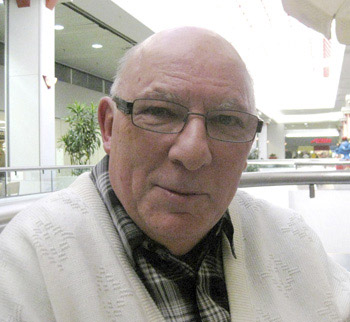MONTREAL — Little did Bernie Weinstein realize that an incorrect dosage of medication given to his mother-in-law at the Jewish General Hospital (JGH) in 2002 would ultimately contribute to a program that is reducing medical errors and “adverse events” at the JGH, other hospitals and even overseas.
The two-year-old Speak Up! campaign, run by the hospital’s Quality Program, allows hospital “stakeholders” – patients, families and clinicians – to work together to minimize medical mistakes and near-misses, reduce patient fears and enhance inter-communication.
It does so through a co-ordinated team effort that fends off friction between parties in favour of co-operation, mutual respect and more informed participation.
And it is proving so popular that another Montreal hospital, the Montreal General, is implementing its own Speak Up! program – as is a hospital in Asia, Weinstein said.
Hospitals in Ontario, Alberta and Manitoba, as well as in the United States, have also have launched their own versions of Speak Up!
JGH information indicates that preventable adverse events and medical errors contribute to the deaths of up to 24,000 Canadians each year.
“It’s… the patient who must be the focal point,” said Weinstein, 66, who chairs Speak Up! at JGH and is currently giving a series of public talks on the campaign through the end of April. “It’s not just about ‘speaking up,’ but also about ‘active listening’ by doctors, nurses, caregivers, and families.
“It is all about a continuous process of education and reinforcement,” he said.
It was not always thus.
When the medication mistake involving his mother-in-law happened 12 years ago (in the end, she recovered), Weinstein, a retired executive at CN Rail, approached Dr. Joseph Portnoy, then the hospital’s director of professional services, who advised Weinstein to be part of a new risk management committee being put into place. None had existed before.
The idea was to establish a process that would allow medical “incidents,” when they did happen, to be acknowledged by the responsible party or parties involved using a using a “no name, no blame, no shame” approach.
It was a process that evolved, Weinstein said, incorporating quality-of-care elements and collaborative team input to eventually develop hospital practices that drastically reduced the number of patients suffering from bedsores – a condition that if not controlled can eventually result in widespread infection and even death.
“The numbers plummeted,” Weinstein said, “because everyone worked together.”
According to the hospital’s website, the launch of Speak Up! culminated a process begun in 2009 that encouraged clinicians to interact among themselves in a more co-operative way.
In 2011, a humanization of care committee was struck at the hospital – which Weinstein also sat on – to determine the best ways for clinicians to listen and speak to patients.
“When a clinician asks, ‘Do you understand?’ patients often say they do even when they really don’t,” Weinstein said. “They realized that it is much better to ask, ‘What do you understand?’”
Speak Out! was launched in late 2011.
Weinstein said hospitals in many areas are increasingly realizing the necessity of putting programs such as Speak Out! into place to prevent medical errors and adverse events. As well, Quebec law already requires hospitals to have policies to investigate medical incidents, as does Accreditation Canada, which accredits the country’s health-care institutions and regularly gives the JGH highest marks for its policies and practices.
Fortunately, Weinstein noted, 99 per cent of medical incidents at JGH are “near-misses” that ultimately resolve, but the Speak Out! campaign has already proven itself invaluable.
The talks he is still to deliver – March 13 at the Cote St. Luc Men’s Club, March 17 at King David Residences and April 29 at Cummings Jewish Centre for Seniors – will focus on the role of patients and families.
Markirit Armutlu, the hospital’s Quality Program co-ordinator, said, “Patients and their families are the greatest stakeholders in the campaign to improve patient safety and preventing adverse events.
“[Their] questions and comments are often a good source of information about potential safety issues.”
